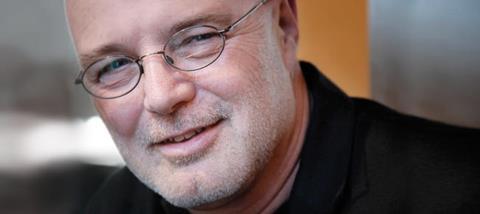
What kind of a revolution do you think is happening in the Church today?
The first of these migrations I talk about is a spiritual migration from defining the faith as a set of beliefs to a way of life. This is nothing new, we’ve been grappling with it for centuries. The more we argue about which beliefs are correct the more we strengthen our agreement that the purpose of Christian faith is to hold up a list of beliefs. We might argue about which ones are right but the point is a list of beliefs.
I think that beliefs are important but I have to be honest as I go back to the scriptures I don’t read that a Pharisee came up to Jesus asking “What is the great commandment?” and Jesus answered, “Thou shalt have the correct beliefs.” The emphasis on love in the New Testament is so significant. As I was working on the book it hit me more than ever. I think that we could be on the verge of Christianity not being the religion of dogma but becoming the religion of love. I know that some people will think it’s mushy but love is the most demanding calling we can ever have.
But is it helpful to exercise love in a specific framework?
Obviously different Christians are going to come to different perspectives. I’m not trying to legislate the only way to do this. But on a very basic level there is a cart and horse question. Would we like to see love as the horse, the driver and the energy that pulls us forward?
And when we disagree as Christians, we should do it in this spirit of love?
Yes, though what I would say is that there is something even deeper going on. In most of our churches so many wonderful things are going on, but the bottom line ends up being: “If you don’t accept this list of beliefs, you do not belong here.” I think as we move forward that is going to be a bigger and bigger problem.
Love is the most demanding calling we can ever have
Is there a baseline of basic beliefs about what it means to be a Christian? Can a person minister at a church and not believe in God?
Churches have every right to set boundaries. If a church says, “This is one of our central beliefs” and you don’t hold it they have every reason to say, “You don’t belong here.” The interesting thing, though, is the number of evangelical pastors who’ve confided in me that they’re not sure they believe in God anymore is higher than a lot of people would ever guess.
What does this tell us? It tells us that the way we talk about God and a lot of our assumptions we have about God are under stress in these days. That’s something we need to wake up to.
The Great Spiritual Migration: How the world's largest religion is seeking a better way to be Christian
(Hodder & Stoughton) is available now



























